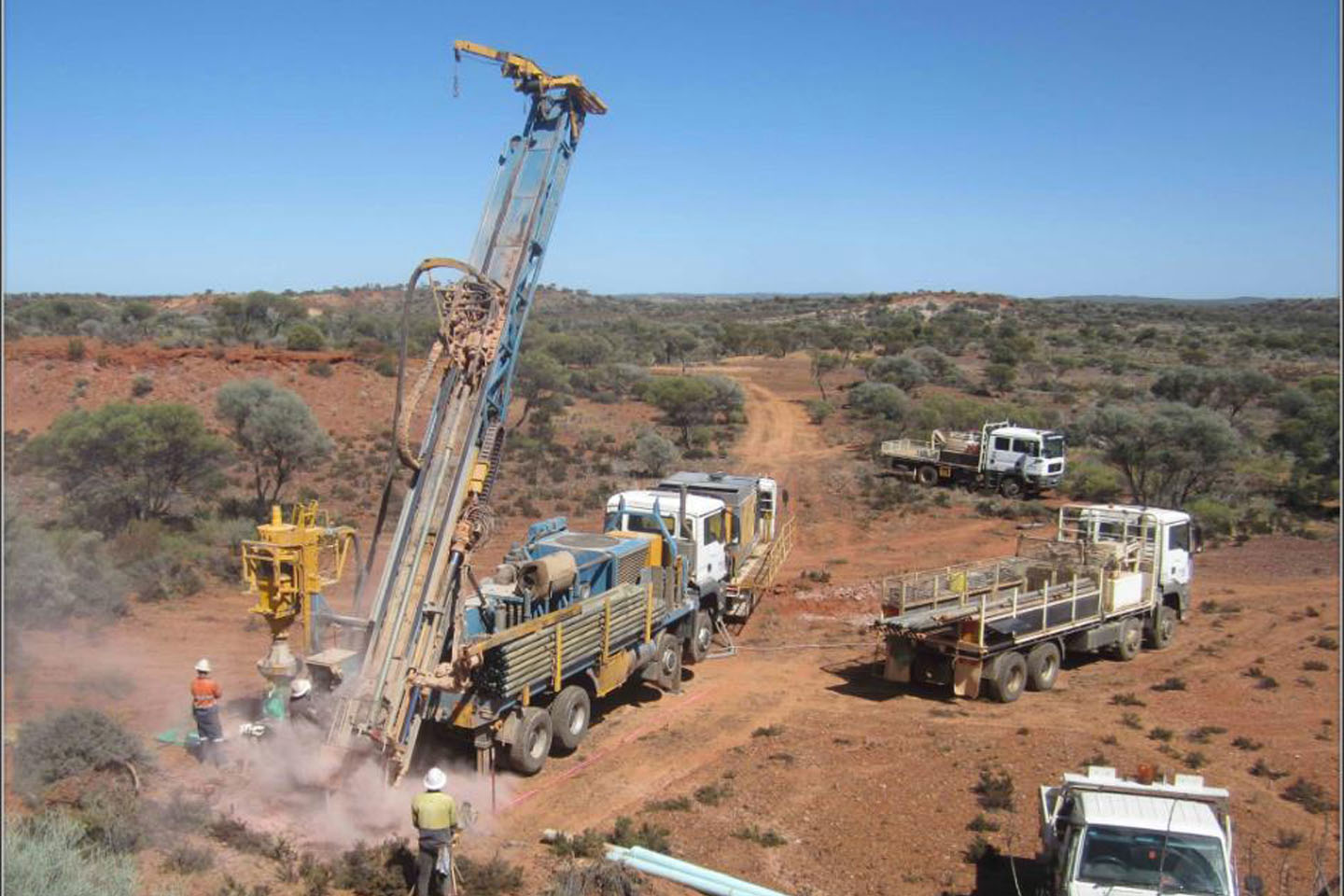ASX-listed Great Southern Mining has the rods turning again with two 160m diamond holes at its Southern Star prospect designed to build on some previous stunning intercepts and increase its understanding of the deposit. Meanwhile, an oversubscribed capital raise of $1.6m before costs will help Great Southern fund further drilling in WA and Queensland.


ASX-listed Great Southern Mining has the rods turning again with two 160 metre diamond holes at its Southern Star prospect designed to build on some previous stunning intercepts and increase its understanding of the deposit, including the orientation of the structures controlling the gold mineralisation.
Meanwhile, an oversubscribed capital raise of $1.6m before costs will help Great Southern fund further drilling in WA and Queensland.
The first hole at Great Southern will be drilled between two previous reverse circulation drill holes that intercepted a whopping 59m high grade domain running at a noteworthy 2.1 grams per tonne gold from 53m and another extraordinary 68m going 1.9 g/t gold from 61m, demonstrating the all-important continuity of mineralisation.
Great Southern says the second diamond drill hole will be drilled through the recent discovery zone where previous drilling turned up 17m at a solid 7 g/t, including 1m at an eye-catching 109 g/t gold some 200m south of the previous known extent of the Southern Star gold deposit.
The results from the two diamond holes will be used to refine drill targeting for a further reverse circulation drilling program planned for early 2022.
Great Southern Mining Chief Executive Officer, Sean Gregory, said, “The diamond drill holes presently being drilled at Southern Star will give us the first detailed look at the gold mineralisation and associated geology at Southern Star. As the hole locations are adjacent to our recent thick high-grade RC intercepts, we are eagerly anticipating some interesting geology. We expect that this program will aid in all future work at Southern Star including refining our targeting for extensional RC drilling planned early next year.”
The company’s Southern Star prospect is part of its Duketon gold project about 45 kilometres north of Laverton in WA’s north-eastern Goldfields. Duketon encompasses more than 450 square kilometres of ground within the gold-bearing Duketon greenstone belt. Great Southern’s tenements are in prime gold real estate as the Duketon greenstone belt is home to multiple million-ounce Archean orogenic gold deposits where gold is found in quartz veins that crosscut intrusive host rocks. In 2008, Regis Resources discovered the Garden Well 2.1-million-ounce deposit grading 1.4 g/t gold following on from a small scale aircore program targeting soil-in-lag anomalies that were similar in size to Great Southern’s Amy Clarke gold-in-soil anomaly.
Great Southern has been busy this year exploring its tenements and has defined several large kilometre scale gold anomalies from regional soil sampling which interestingly, also show associated anomalous arsenic, tungsten and bismuth, all of which show excellent correlation with gold. The company said the association with “pathfinder” elements is good news as it indicates the gold is less likely to be transported as these associated elements are less mobile within the weathering regime and will likely not have been transported far from source.
Great Southern also interpreted two cross-cutting north-eastern geophysical structures as possible fluid traps that could have aided in localising the mineralisation. The structures have a close spatial relationship to the gold in soil anomalies and interestingly, this pattern is seen at the neighbouring Erlistoun gold deposit and other large gold deposits in the Duketon Belt. A geophysical magnetic low channel across the Great Southern tenements is associated with the gold anomalies and can be traced 3km north to Regis Resources’ impressive 322,000-ounce Erlistoun deposit where grades of 1.9 g/t gold can be found.
The data obtained so far has helped Great Southern update the geological model for mineralisation and according to the company, the high-grade results are beginning to join up, revealing a north and south plunging geometry to the deposit.
The current diamond drilling through the central region of the deposit will give further insight into the all-important orientation of the mineralised structures.
Additionally, the recently oversubscribed capital raise of $1.6 million will help fund further drilling in WA and Queensland. Great Southern says it will use the funding for an air core drilling program at Amy Clarke and the diamond drilling program commencing at Southern Star. Funds will also be allocated to accelerate exploration activities at the newly identified conductor target at the East Laverton nickel project and fund later extensional drilling programs at Southern Star.
With a 59m and a 68m ore grade intersection already in the bag at Southern Star the market meerkats will no doubt be sitting bolt upright in anticipation of any new numbers to come from this rapidly developing prospect.
Is your ASX-listed company doing something interesting? Contact: matt.birney@businessnews.com.au












